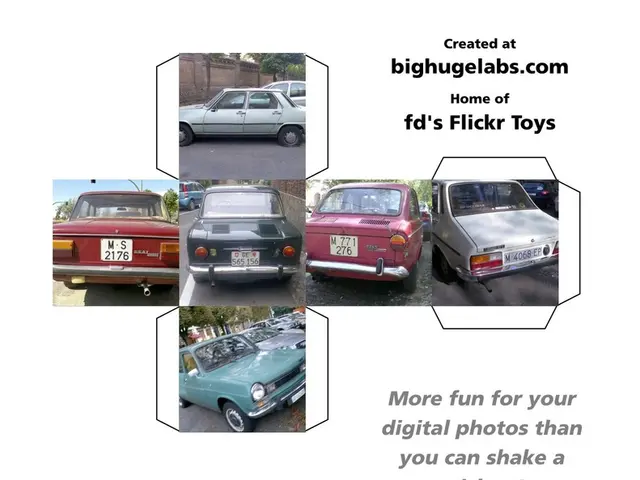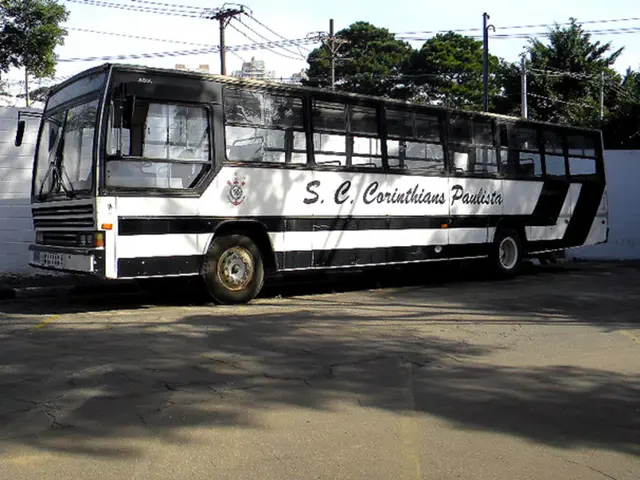Gearing Up for a Decision on EU Car CO2 Limits: What to Expect
Too Hot to Handle? The Potential Relaxation of CO2 Limits
Anticipated adjustment of CO2 emission standards for vehicles potentially set for approval by Thursday - Relaxation of Car Emission Standards Decision to Be Announced on Thursday
The European Union (EU) has proposed a temporary reprieve for car manufacturers, allowing them to offset the carbon emissions of their 2022 vehicles with the values from the following two years [1][2]. This concession, known as fleet limits, ensures that carmakers can exceed current limits this year, with the chance to make up for it in 2026 and 2027 [2].
In the race against climate change, this proposition could be a game-changer for companies such as Volkswagen and Renault who are grappling with stricter emission standards [2]. They have lobbied for more flexibility in Brussels, as failing to meet EU targets could result in fines [2].
Pooling Resources: An Existing Loophole
Besides the proposed relaxations, current regulations already provide a way for manufacturers to evade penalties: they can collaborate in so-called 'pools,' sharing an average limit [4].
The Path Ahead: Threats to the Future of Combustion Engines
Before the vote this week, the European Parliament has the opportunity to introduce additional changes, even potentially altering the date for the phase-out of combustion engines [4]. Though this would necessitate further negotiations with the 27 EU governments, conservative and far-right politicians have expressed a desire to overturn the planned phase-out [4].
The legislative review at the end of the year could bring fresh disputes, with the new German government potentially at odds over the combustion engine phase-out. While the Union favors adherence to the policy, the Social Democratic Party (SPD) prefers steadfast implementation, and both sides have only agreement on a general statement in the coalition contract [5].
With the stakes high, stay tuned for the outcome of the vote this week. Will the EU pave the way for a cleaner automotive future, or will the transition take a more incremental path?
Resources:1. "EU ministers to vote on CO2 car limits relaxations," Reuters, Sep 29, 20212. "Europe delay on tighter emissions rules for cars," BBC, Sep 27, 20213. "Looser CO2 limits for cars 'too soft,' EU lawmakers say," Euractiv, Sep 28, 20214. "Scramble intensifies in race to sell Europe's last combustion engine cars," DW, Sep 11, 20215. "Germany unveils climate crisis law: ten key points," DW, Jun 9, 20216. "Projecting the future of global EV adoption: understanding the role of government incentives," IEA, May 6, 20217. "The impact of evolving clean vehicle policies," McKinsey, Mar 11, 2021
- The European Union (EC) countries are set to decide on car CO2 limits, with potential relaxations on the horizon.
- In Brussels, car manufacturers are lobbying for flexibility in meeting EU emission targets, fearing hefty fines if they fail.
- The proposed fleet limits would allow carmakers to exceed current CO2 limits in 2022, with the potential to make up for it in 2026 and 2027.
- Existing regulations already provide a loophole for manufacturers, allowing them to collaborate in 'pools' and share an average emission limit.
- The European Parliament has the opportunity to introduce changes before the vote, possibly altering the phase-out date for combustion engines.
- Led by conservative and far-right politicians, attempts to overturn the planned phase-out could trigger further negotiations with the 27 EU governments.
- The legislative review at the end of the year could spark fresh disputes, particularly as the new German government may have differing views on the combustion engine phase-out, potentially impacting the future of the automotive industry's energy policy.








